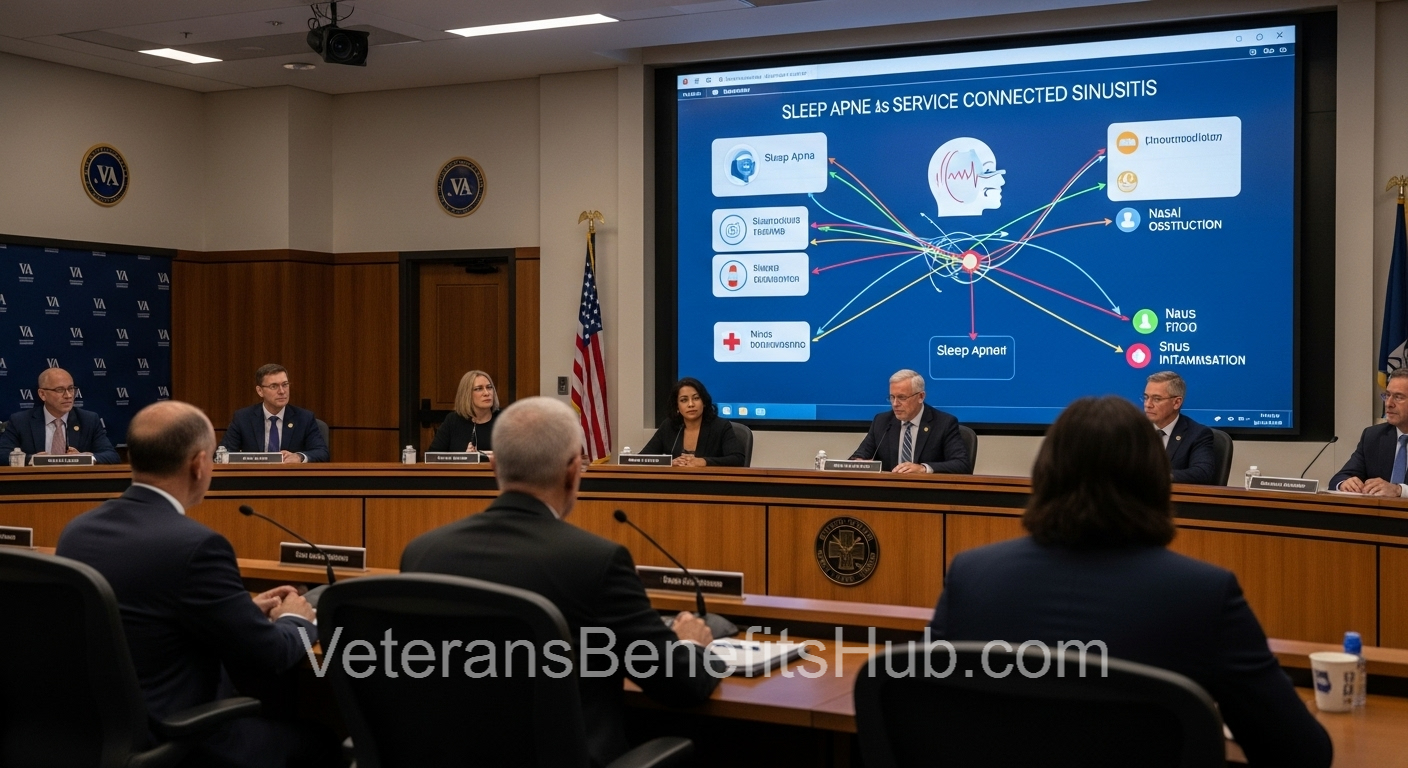
Exploring Secondary Service Connections for Sleep Apnea
Sleep Apnea Secondary to Sinusitis
Sinusitis is a condition characterized by swollen and inflamed sinuses persisting for three months or longer. Symptoms include nasal inflammation, nasal discharge, drainage down the throat, pain, tenderness, swelling around the eyes, cheeks, or forehead, ear pain, fatigue, and cough.
A Board of Veterans’ Appeals (BVA) decision illustrates a successful claim for sleep apnea as secondary to service-connected sinusitis. The BVA decision, accessible at bva.va.gov, granted entitlement to service connection for sleep apnea aggravated by service-connected sinusitis. A medical opinion from April indicated that a veteran’s sinusitis, present during service, contributed to sleep apnea due to nasal obstruction. However, a VA examiner concluded it was less likely than not that sleep apnea was incurred or caused by service. Despite this, the BVA found the evidence sufficient to warrant service connection, emphasizing the importance of understanding legal standards such as “at least as likely as not” to overcome denials.
Reviewing the VA claims file and understanding the legal arguments involved are critical steps for anyone pursuing such claims. Consulting the BVA’s decisions can provide valuable insight into how these cases are argued and won.
Sleep Apnea Secondary to PTSD
Post-Traumatic Stress Disorder (PTSD) is a recognized mental health condition for VA disability ratings. Sleep apnea is a common secondary condition linked to PTSD. Another BVA decision granted service connection for sleep apnea caused by service-connected PTSD. The evidence was deemed evenly balanced, a situation known as equipoise, where the benefit of the doubt favors the claimant. A June 2018 medical opinion, though using ambiguous terminology, supported the conclusion that sleep apnea was caused by PTSD. This underscores the importance of consistent medical evidence and leveraging the benefit-of-the-doubt principle to secure a favorable ruling.
Sleep Apnea Secondary to Lower Back Conditions
Lower back conditions can contribute to sleep apnea, often through medications like muscle relaxers that cause weight gain or reduced mobility. A BVA decision granted service connection for sleep apnea as secondary to a service-connected lumbar spine disability. An August 2021 medical opinion, supported by a June 17 VA treatment record, established that medications for the lumbar spine disability caused the sleep apnea. Consistency in medical records and supporting literature submitted by the claimant were key to resolving reasonable doubt in their favor.
Key Takeaways
Three high-value secondary conditions for sleep apnea claims include sinusitis, PTSD, and lower back conditions. Researching BVA decisions at bva.va.gov provides critical insights into successful claims. A strategic, evidence-based approach, supported by consistent medical records and legal arguments, significantly increases the likelihood of a favorable outcome. Understanding the process and reviewing other claimants’ approaches can make a substantial difference.
Disclaimer: Some portions of this article may reflect opinions based on the contributor’s analysis of BVA decisions and VA claims processes. Readers are encouraged to consult official resources and legal professionals for personalized guidance.
